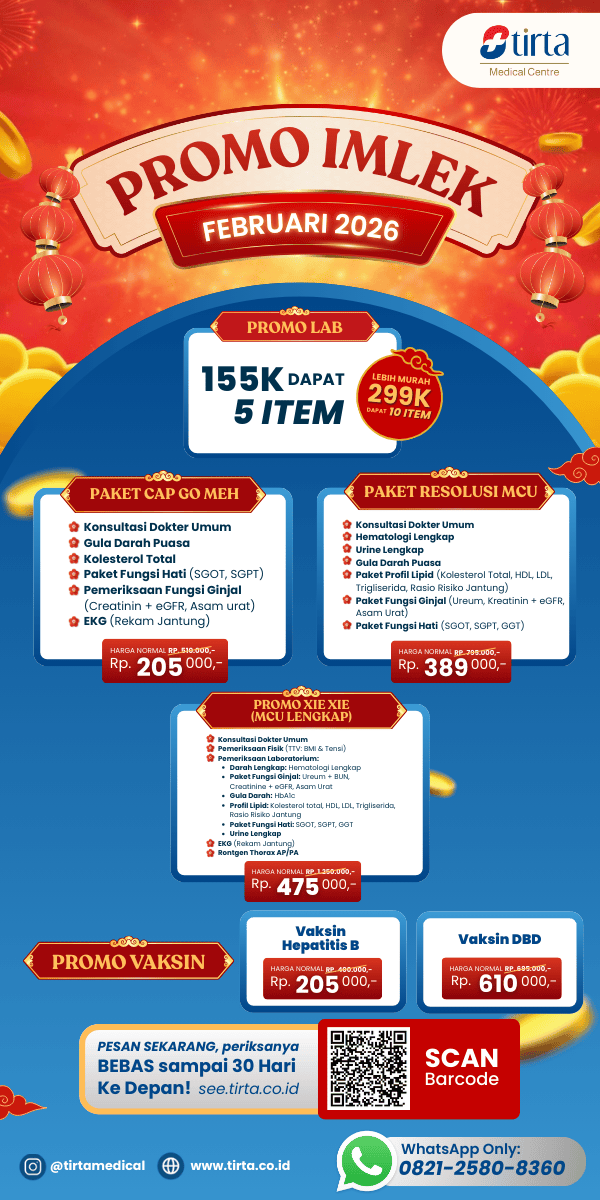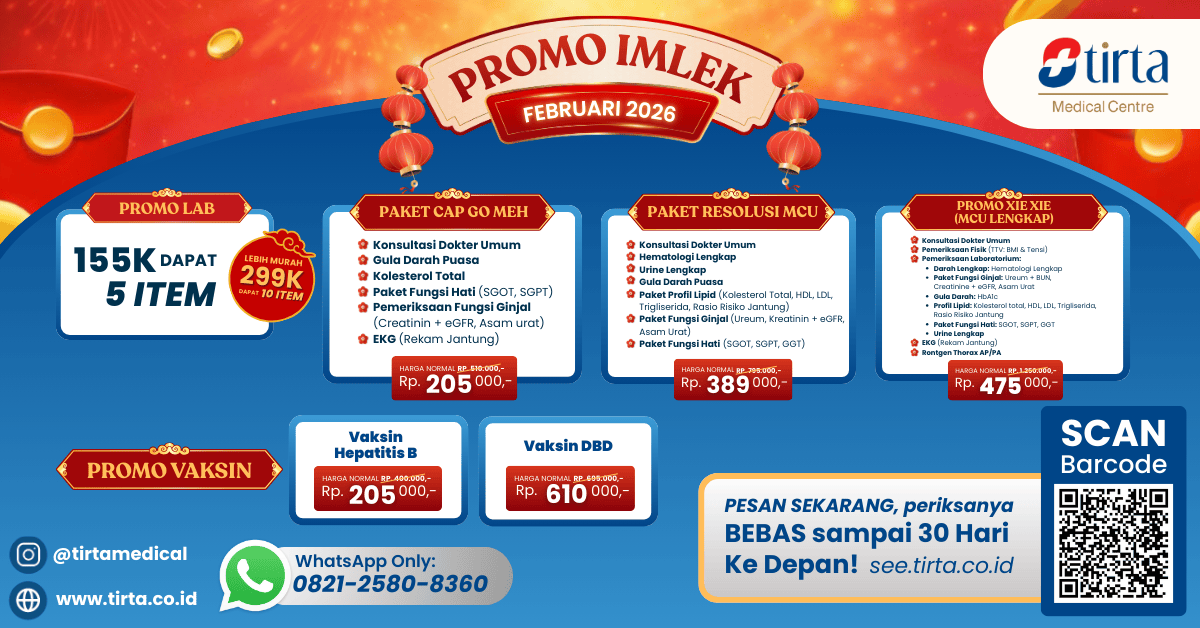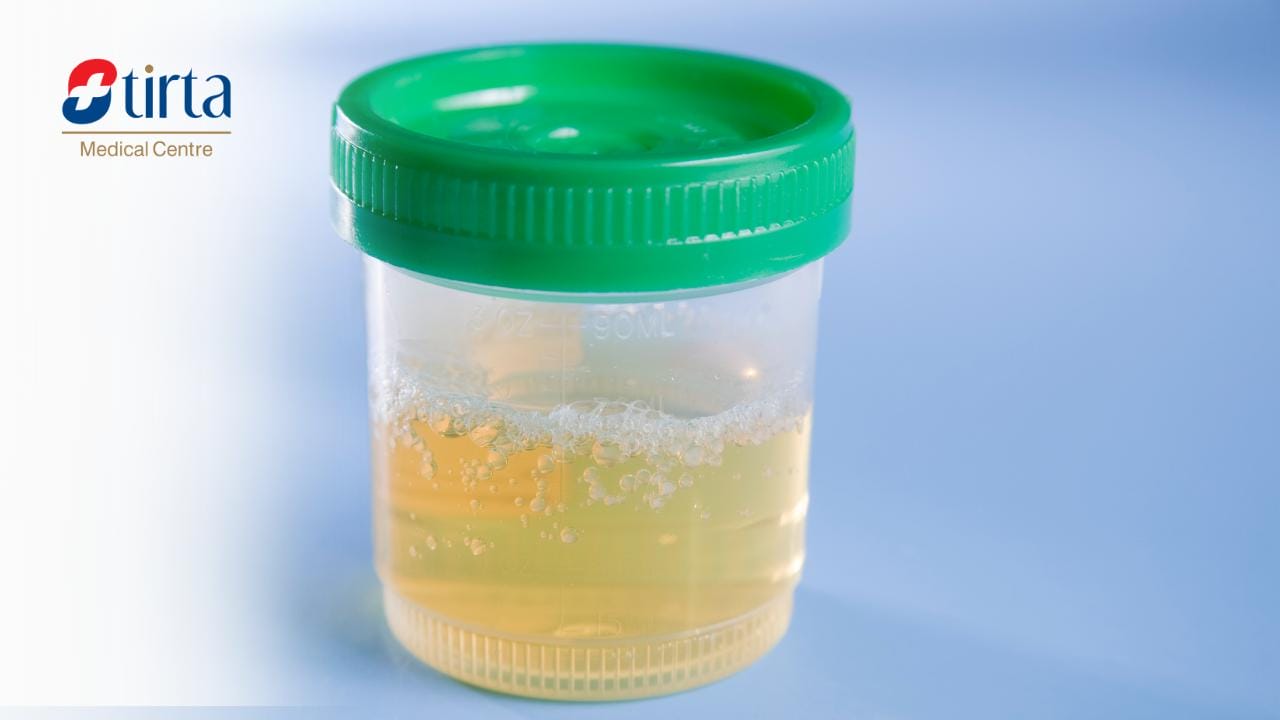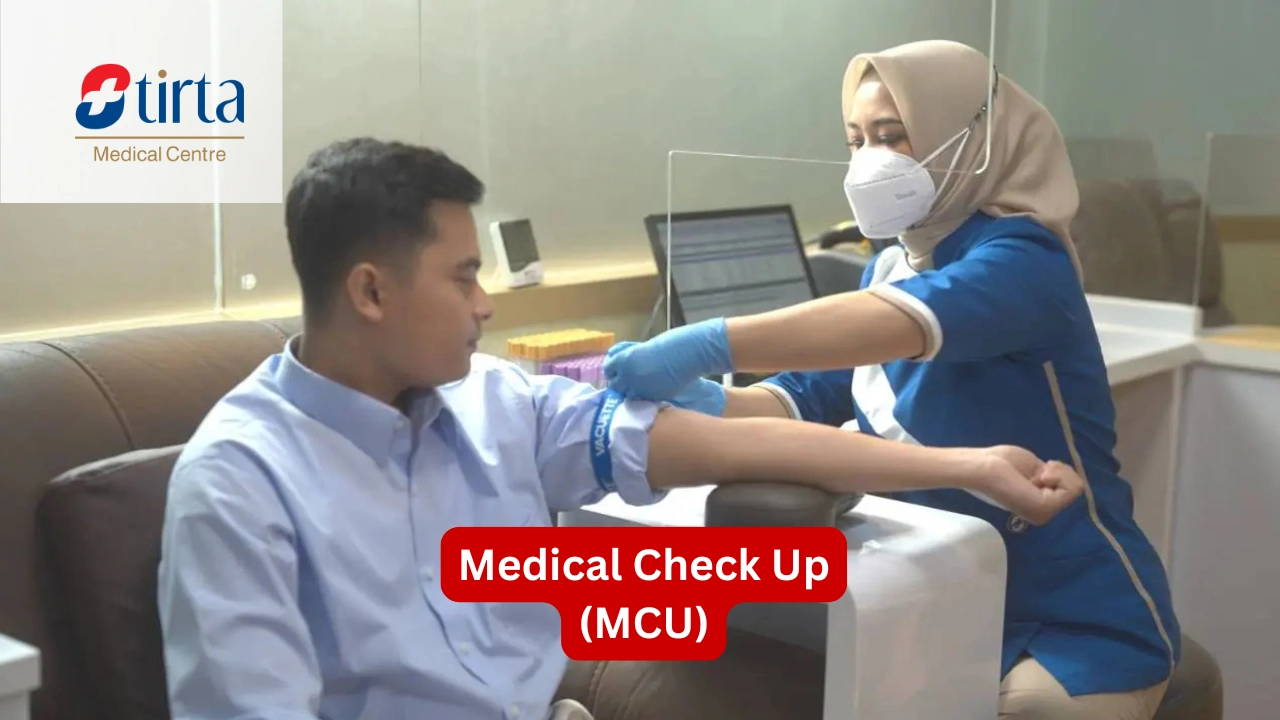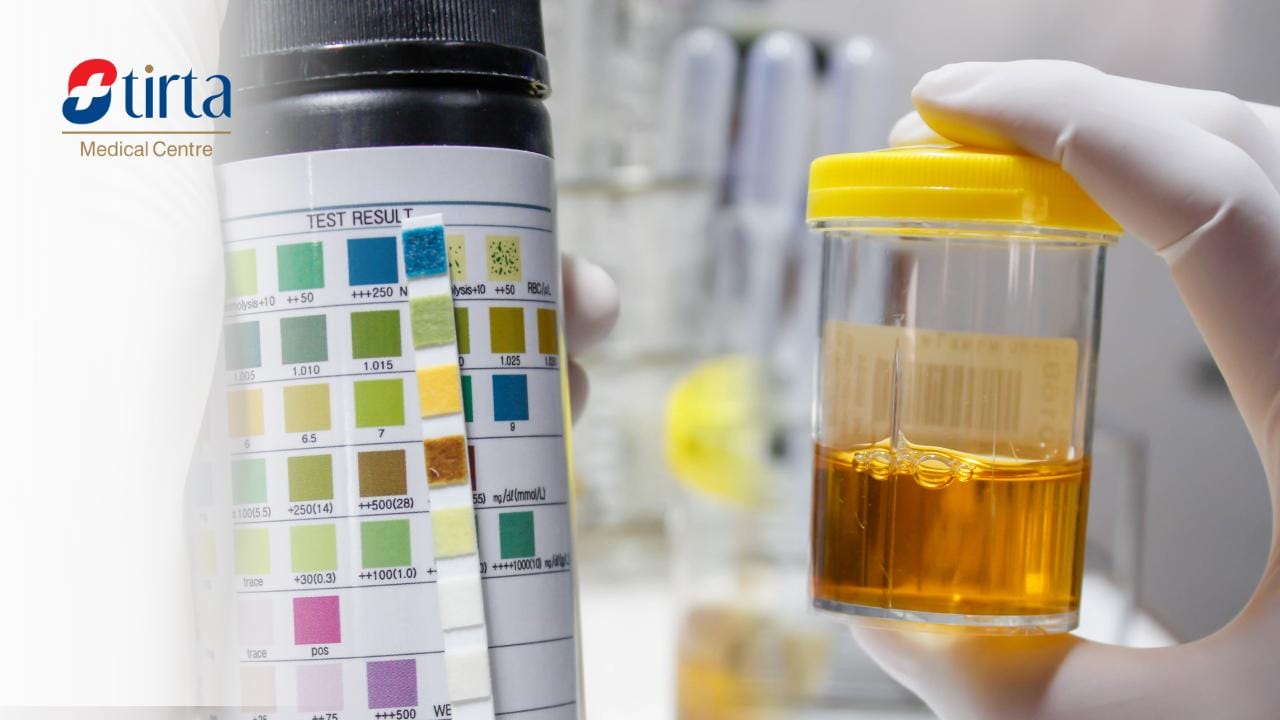Getting a work medical check-up is essential for prospective employees to ensure they are healthy and ready to work. Employers may ask for blood, urine, chest x-ray, and pulmonary function tests as part of the job application process. Additional tests may also be requested depending on the job.
The price of a Medical Check Up for work can vary, but several companies provide low-cost or free packages as part of employee benefits.
The screening procedure generally requires registration and fasting 8-12 hours before the blood test. Good preparation will ensure the Medical Check Up process goes smoothly and meets all the required standards.
Purpose and Benefits of Employee Medical Check Up (MCU)
Maintaining employee health is a critical aspect in building a productive and harmonious work environment. Regular MedicalCheck Ups help companies monitor and improve the physical and psychological health of their employees. Here are the benefits of MCU for employees:
1. Increased Productivity
Healthy employees tend to have higher productivity. Regular medical check-ups help employees keep track of their health, find potential health issues early, and reduce sick days while improving work performance.
2. Disease Prevention
Through health screening, diseases can be detected at an early stage. This improves treatment outcomes and lowers the risk of lasting complications, which can be costly for both the employee and the company.
3. Employee Retention
Companies with regular health check-up programs for employees will be seen as caring and supportive workplaces. This can boost employee morale and help retain top talent.
4. Company Reputation
Highlighting the company’s commitment to employee well-being through a Medical Check Up package showcases its attractiveness as an employer. This can help attract high-quality candidates when recruiting new talent.
5. Financial Benefits
Aside from the long-term health cost savings, there are tax benefits associated with providing Medical Check-Ups as part of an employee compensation package that can decrease taxes for both the company and employees.
6. Pre-Hire Screening
Screening candidates’ health before hiring can ensure they meet company standards for job performance and reduce absenteeism.
Types of Employee Medical Check Up
Employee MedicalCheck Up (MCU) is carried out to ensure optimal health in carrying out work tasks. Here are some types of Medical Check Up for employees that you need to know.
1. Pre-Employment Medical Check Up
Conducted before an employee officially joins the company. It ensures that the future employee is healthy enough to do the job.
2. Periodic Medical Check Up
This MCU is scheduled on a regular basis, such as annually, to monitor the health of current employees. It helps find health problems early, before symptoms appear, so that preventive measures or early treatment can be taken.
3. Specialized Medical Check Up
Conducted for specific situations, such as following a workplace accident or during a workplace disease outbreak. Focuses on specific health issues that are directly related to incidents or special needs that arise in the workplace.
4. Medical Check Up Based on Occupational Risks
Designed according to the health risks associated with specific types of work. Example: Workers in the chemical industry may need periodic tests for chemical exposure, while construction workers may need more frequent tests for lung function and physical capacity.
5. Executive Medical Check Up
Often more comprehensive and conducted at more frequent intervals, especially for executive positions or top-level employees. May include more detailed health tests such as MRI scans, stress tests, and more in-depth cardiac fitness evaluations.
MCUs help employees perform better and stay healthy at work, while minimizing accidents and increasing productivity.
Cost of Medical Check Up for Work
Medical Check Up for work is an important procedure that ensures an employee’s health before starting work. The tests are used to check for any medical conditions that may impact a person’s ability to do their job.
The cost of the Medical Check Up varies depending on various factors. Here are some of the factors that affect the cost of Medical Check Up for work:
1. Type of Test Required
The cost of a Medical Check Up is greatly influenced by the type of tests performed. Simple tests like blood, urine, and blood pressure checks are usually less expensive than complex tests like ECG, lung function tests, or MRI. Each additional test will add to the total cost of the health screening.
2. Health Facility Selected
The cost of the Medical Check Up also depends on the health facility chosen. MCU at Tirta Medical Center (TMC) is the best choice for employee MCU due to the best quality of service and facilities in Indonesia.
3. Geographical Location
The geographical location where the Medical Check Up is conducted also plays an important role in determining the cost. In big cities or business centers, the cost of medical check-ups tends to be higher compared to rural areas or small towns.
4. Screening Package
Many healthcare facilities offer screening packages that are specifically designed for work purposes. These packages usually include various standard tests required by the company. Choosing a screening package is often more economical compared to doing the tests separately.
5. Company Policy
Some companies cover all or part of the cost of employee medical check-ups as part of their health benefits. This certainly reduces the cost burden for employees.
By understanding the factors that affect the cost of Medical Check Up for work, you can plan and prepare your budget better. Make sure to always choose a trusted and quality health facility to get accurate and complete examination results.
Employee Medical Check Up Preparation that Needs to be Considered
Employee Medical Check Up preparation is an important step to ensure health and safety in the workplace. Before the procedure begins, it is important for employees to inform the doctor of their personal and family medical history, as well as discuss lifestyles that may affect test results.
Also, make sure employees understand the types of tests that will be carried out, such as blood, urine and physical examinations, to prepare themselves mentally and physically. The following is a complete explanation of employee MCU preparation that needs to be considered:
1. Health History Check
Before undergoing a Medical Check Up, employees must provide complete information about their health history, including health conditions that have been or are being experienced and medications taken.
This is important so that the doctor can adjust the type of examination to be performed to avoid risks and maximize the accuracy of the test results.
2. Drug and Alcohol Tests
Drug and alcohol tests are an important part of the pre-employment screening process intended to ensure that potential employees are free from the influence of substances that could impair workplace performance and safety.
These tests usually involve a urine or blood sample, which will be analyzed to detect the presence of banned substances.
3. Physical Examination and Vital Signs
Physical examinations include weight and height measurements, as well as evaluation of vital signs such as blood pressure, heart frequency, and body temperature. This helps assess the employee’s general physical condition and detect any unknown medical conditions.
4. Laboratory Testing
Laboratory testing includes blood, urine, and sometimes other functional tests, which can provide a comprehensive picture of the health of organs and systems in the body.
These tests are essential for detecting health issues such as diabetes, infections, or kidney disease that may not show early symptoms.
5. Mental and Physical Readiness
It is important for employees to get enough sleep and maintain good hydration before the Medical Check Up. Avoid strenuous physical activity and stress to reduce variability in some tests, such as blood pressure or blood tests.
6. Job Involvement
Some jobs may require special health checks depending on the risks of the job. For example, workers who are exposed to hazardous chemicals may require special check-ups to monitor the long-term effects of such exposure.
An in-depth understanding of each of these aspects will help ensure that employees are prepared for the Medical Check Up, resulting in accurate and useful data to ensure health and safety in the workplace.
Employee Medical Check Up Procedure
The employee Medical Check Up procedure aims to ensure health and safety in the workplace. The following are the main stages of this procedure:
1. Laboratory Examination
Laboratory examination is the first step in an employee medical check-up, which involves analyzing blood and urine samples to assess various health parameters, such as blood sugar levels, lipid profile, and kidney and liver function.
This process is vital for detecting conditions that do not show early symptoms such as diabetes and hypertension.
2. X-ray and ultrasound examination
Radiological examinations such as chest X-rays are used to observe the condition of the lungs and bony structures of the chest, important for early detection of problems such as tuberculosis or congenital abnormalities. Ultrasound (USG) can be applied to examine internal organs such as the liver, kidneys and gallbladder.
3. Electrocardiography (ECG) examination
An ECG is a non-invasive procedure that records heart activity to identify heart problems such as arrhythmia or ischemia. It is essential for workers in high-stress positions or those with a history of heart disease.
4. Audiometric Screening
Audiometry is used to evaluate an employee’s hearing ability, especially important for those who work in environments with high noise levels.
This helps prevent hearing loss that can affect employees’ productivity and quality of life.
5. Spirometry Examination
Spirometry is a lung function test that measures how much and how quickly an employee can expel air from their lungs. It is important for detecting chronic obstructive pulmonary disease or work-related asthma.
6. Pap smear examination
Pap smear is a special screening for female employees to detect any pre-cancerous or cancerous cells in the cervix. This screening is routinely recommended for women over the age of 21 or who have been sexually active.
7. Color Blindness Test
Color blindness tests are important for employees whose jobs require accurate color recognition, such as machine operators, doctors, military, police, security, laboratories, and so on.
8. Assessment of Employee Medical Check Up Results
After all examinations are completed, the doctor will assess the results and provide recommendations based on the employee’s health status. This evaluation can be used by the company to adjust job duties to suit the employee’s health condition.
Procedures After Employee Medical Check Up
After the Medical Check Up (MCU) process for employees is completed, there are several important steps that must be followed to ensure that the data and results obtained can be maximally utilized by the company as well as the employees themselves. The following are the procedures that are generally followed:
1. Data Collection and Evaluation
After the MCU is completed, the doctor or medical personnel will collect all the data from the examination. This data will then be evaluated to determine if there are any early signs of illness or conditions that require further action.
2. Delivery of Results to Employees
The results of the MCU will be shared with employees individually. This is important to ensure that the employee understands his/her health condition and accepts the recommendations given by the medical personnel.
3. Report to HR Department
The MCU results will also be reported to the company’s Human Resources (HR) department. The purpose is to provide documentation and to assess whether there is a need for workplace adjustments that can help employees maintain or improve their health.
4. Follow-up Plan
If the MCU results indicate any health conditions that require further attention, the employee will be referred to an appropriate specialist.
The company may work with the employee to develop a follow-up plan, including medication, further consultation, or lifestyle changes.
5. Health and Welfare Programs
Many companies also use MCU results as a basis for developing or adjusting workplace health and wellness programs. These can include diet and nutrition programs, exercise, stress reduction, and others.
6. Periodic Monitoring and Evaluation
After the MCU, it is important for companies to continuously monitor employee health and the effectiveness of the wellness programs that have been implemented. Periodic evaluations will help ensure that both employee and company health goals can be achieved.
Medical Check Up for Work at Tirta Medical Center (TMC)
Having a medical check-up before starting work is an important step to ensure that you are in good health and able to carry out the tasks required in the workplace.
Tirta Medical Center offers a special Medical Check Up Package for work purposes that includes a series of health tests to assess and ensure the physical and mental fitness of employees. Here are the main components of the package:
1. General Physical Examination
Includes height and weight measurements, blood pressure, and other physical examinations to assess general physical condition.
2. Laboratory Tests
Complete blood analysis to detect any infections or other conditions that could affect workplace performance. Liver and kidney function tests to ensure these organs are functioning properly.
3. Vision and Hearing Screening
Tests to identify vision or hearing problems that may affect employability.
4. Heart Health Evaluation
ECG (Electrocardiography) to detect heart problems that could affect safety at work.
5. Posture Analysis and Ergonomics
Evaluation of posture to prevent musculoskeletal injuries that often occur in the workplace.
6. Psychological Consultation
Sessions with a psychologist to assess mental health and ability to cope with stress in the work environment.
7. Health Report and Recommendations
After all examinations are completed, the doctor will provide a complete health report with specific recommendations if any health problems are found.
By undergoing a Medical Check Up at Tirta Medical Center, employees and companies can rest easier because they have ensured that employees’ health is in optimal condition to support productivity in the workplace.
Reference:
- Medwork. Accessed in 2024. Types of Medical Examinations.
- Omega Health. Accessed in 2024. What to expect during a pre-employment medical.
- NURA. Accessed in 2024. Six Key Benefits of Employee Health Screening.
- Johns Hopkins Medicine. Accessed in 2024. Chest X-Ray.
